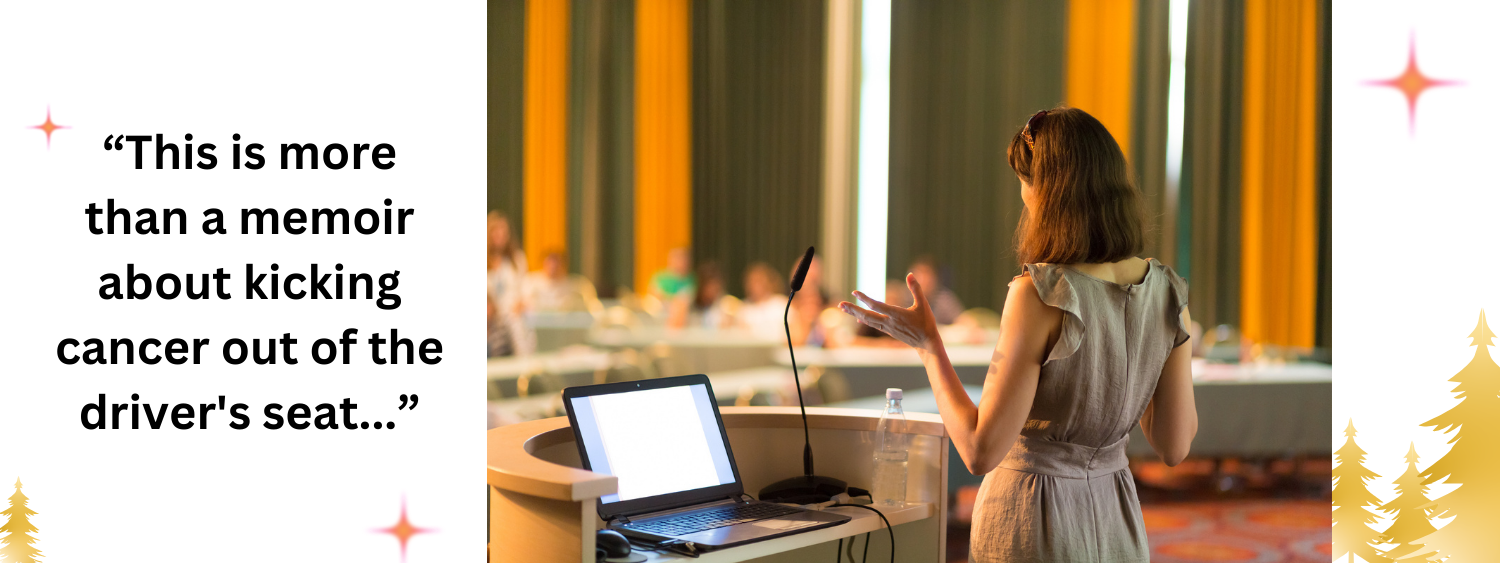
Elisa Everts

Elisa Everts
Elisa Everts is a writer, educator, and grief educator with a Ph.D. in sociolinguistics and a passion for language as a tool for healing. A Stage IV cancer survivor, lifelong teacher, and adoptive mother of many, she writes at the intersection of grief, storytelling, spirituality, and joy. Her work is rooted in the belief that suffering can be sacred—and that the shadow of death is not black, but technicolor. I Should Wake Before I Die is her debut memoir.
In May of 2020, Elisa Everts drove herself to the ER in the middle of the night with an insufferable stomachache. To her astonishment, the ER doctor stood in front of her and said, “You have Stage IV pancreatic cancer. You might have a year.”
She could not have been more surprised if he had told her she had been adopted from an orphanage in Uganda (she being a pasty white girl). Nevertheless, she started calmly planning her last chapter from her ER bed, totally unafraid. Why? Because she realized this was not her first rodeo. Even though she had never dreamed of having cancer herself, in 2001, she cared for her dearest friend as she died of stomach cancer and, in that process, unraveled most of the existential riddles that generally plague a person faced with a terminal diagnosis. Sitting in the ER, she thought, “I have had twenty years to think about it. I know how to do this.”
But there was something even more profound going on. The death of her friend triggered an earthquake of unresolved grief from deep in her past, and she cried her guts out for seven years. There is normal grief, and then there is complicated grief. Elisa had experienced the very traumatic death of her little brother when she was four but had been too young to process that traumatic grief effectively. Paradoxically, the pain of her grief for her friend led her into an incredible healing journey that transformed her life. So, by the time she received her terminal diagnosis, she was so healed that it was a marvelously peaceful experience.
Dr. Elisa Everts earned her doctorate in Sociolinguistics from Georgetown University in 2013, enhancing a distinguished career spanning over three decades. As a dedicated educator, she has enlightened minds across the United States and Asia, imparting knowledge of language, linguistics, and culture with profound passion. Driven by her belief in the transformative power of teaching, she views it as an expression of love for humanity.
Beyond academia, Dr. Everts has made significant contributions to literature and academia, with numerous publications ranging from scholarly articles on humor and the interplay between the blind and sighted to evocative poetry and creative nonfiction. Today, as the founder of Evertree Hope Management, she channels her expertise into dynamic public speaking, writing, and training endeavors, focusing her efforts on supporting cancer patients and those navigating grief through the medium of storytelling.
Having personally triumphed over Stage IV cancer, Dr. Everts brings a unique blend of academic rigor and lived experience to her advocacy work. She intimately understands the trials and tribulations faced by cancer patients and recognizes the profound significance of the narratives they share—both with others and within themselves. Dr. Everts' unwavering commitment to amplifying these voices underscores her mission to inspire hope and resilience in the face of adversity.
About the Book: I Should Wake Before I Die: Field Notes from the Valley of the Shadow (with Snacks!)
What happens when a woman with a wicked sense of humor and a PhD in linguistics is handed a stage four cancer diagnosis? She grabs the mic, flips off the Grim Reaper (politely), and starts writing.
In this unflinchingly honest and fiercely funny memoir, Elisa Everts chronicles her journey from terminal misdiagnosis to unexpected healing—not just of the body, but of the soul. With deep warmth and audacious wit, she invites readers into the intimate contours of her experience: the grief of old wounds reopened, the beauty of relationships rekindled, the revelation of her own resilience, and the miracle of meaning found in mortality.
Drawing on her background as a storyteller, educator, and grief companion, Elisa refuses the cliché narratives. There are no war metaphors here, no toxic positivity, no easy answers—just one brilliant voice delivering dispatches from the thin places between life and death, joy and sorrow, suffering and sacredness.
If you’ve ever wondered how to face death without losing your soul—or your sense of humor—this book will leave you laughing, weeping, and savoring the life you have left with new eyes.

